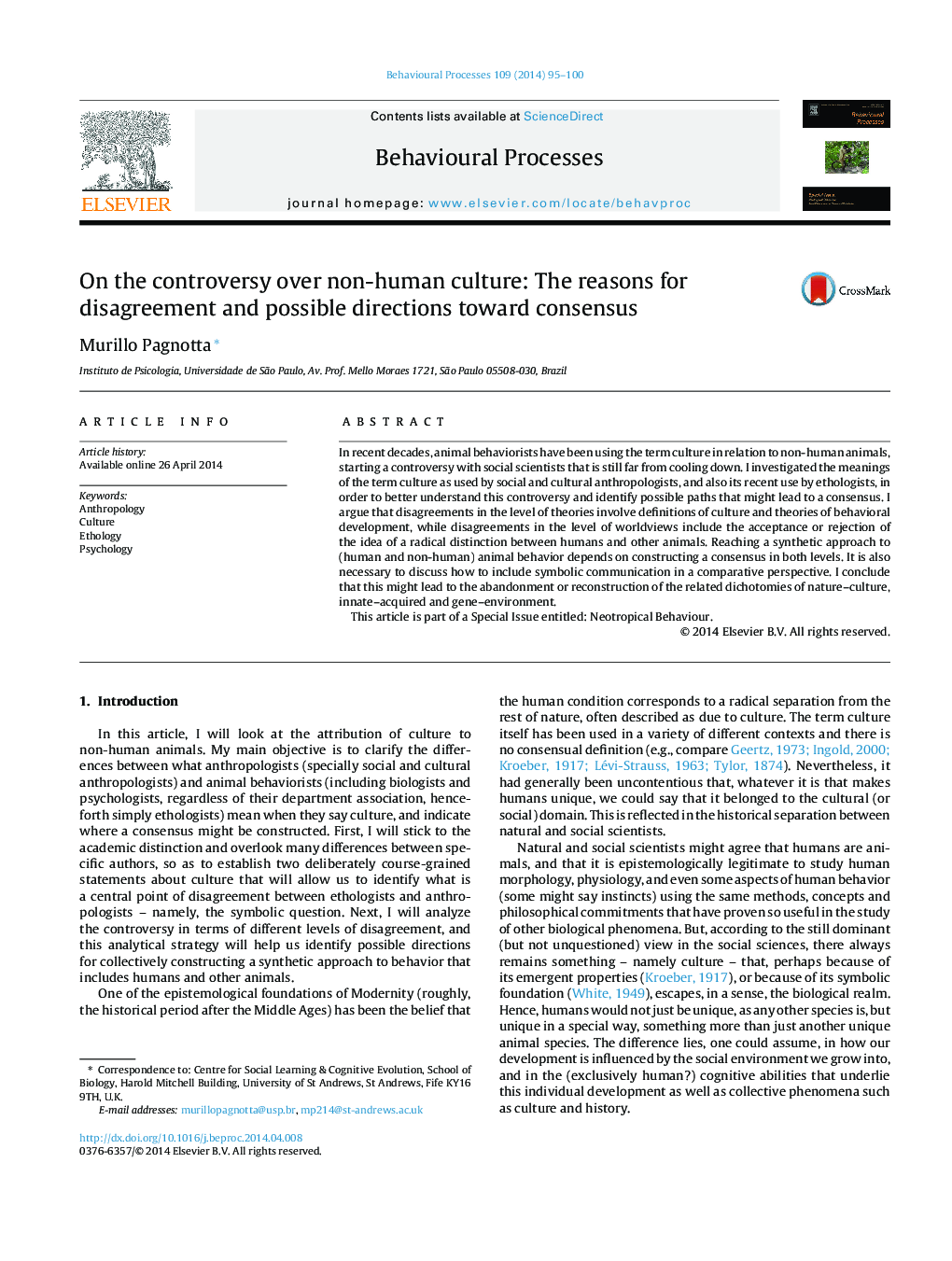| کد مقاله | کد نشریه | سال انتشار | مقاله انگلیسی | نسخه تمام متن |
|---|---|---|---|---|
| 2426726 | 1105916 | 2014 | 6 صفحه PDF | دانلود رایگان |
• Modern anthropologists oppose nature and culture and associate it with symbol use.
• In ethology, non-human culture is not associated with symbol use.
• Some contemporary anthropologists question the culture paradigm.
• In parallel, some contemporary ethologists question the nature–nurture opposition.
In recent decades, animal behaviorists have been using the term culture in relation to non-human animals, starting a controversy with social scientists that is still far from cooling down. I investigated the meanings of the term culture as used by social and cultural anthropologists, and also its recent use by ethologists, in order to better understand this controversy and identify possible paths that might lead to a consensus. I argue that disagreements in the level of theories involve definitions of culture and theories of behavioral development, while disagreements in the level of worldviews include the acceptance or rejection of the idea of a radical distinction between humans and other animals. Reaching a synthetic approach to (human and non-human) animal behavior depends on constructing a consensus in both levels. It is also necessary to discuss how to include symbolic communication in a comparative perspective. I conclude that this might lead to the abandonment or reconstruction of the related dichotomies of nature–culture, innate–acquired and gene–environment.This article is part of a Special Issue entitled: Neotropical Behaviour.
Journal: Behavioural Processes - Volume 109, Part A, November 2014, Pages 95–100
